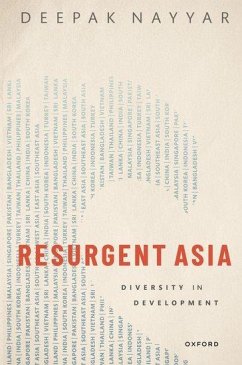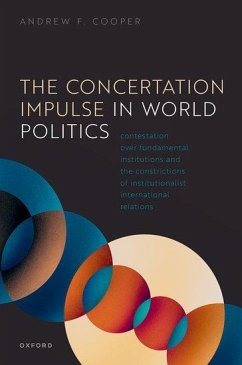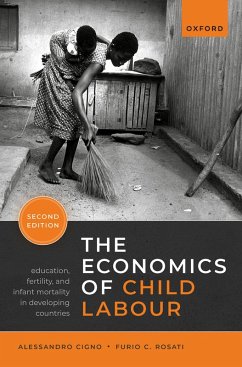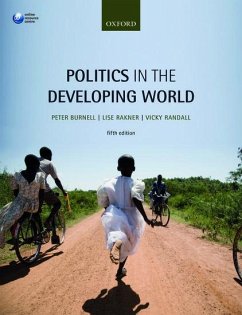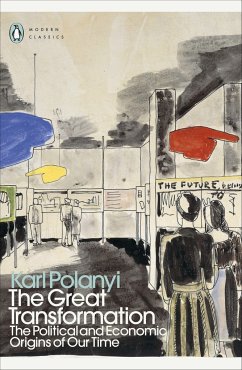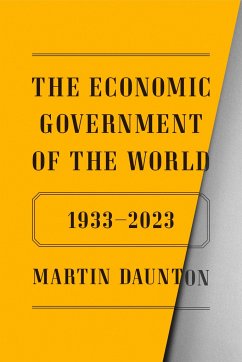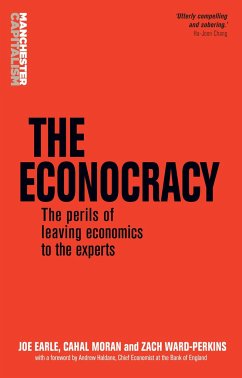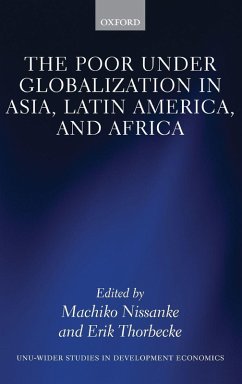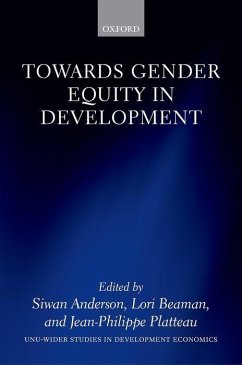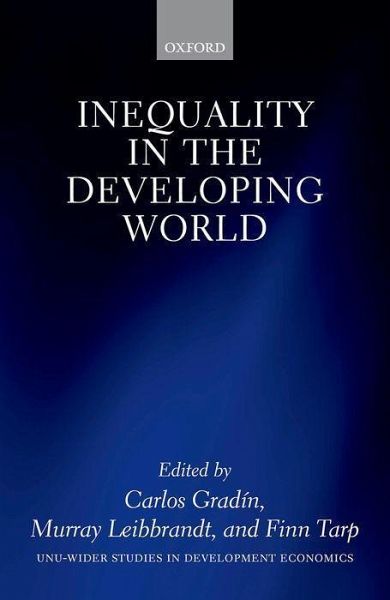
Gebundenes Buch
Inequality in the Developing World
Versandkostenfrei!
Versandfertig in über 4 Wochen

PAYBACK Punkte
81 °P sammeln!




An analysis of the elevated level of contemporary global economic inequality--its measurement, trends over time and geography, and the policy challenges thrown up by them, with a focus on mainly five countries--Brazil, China, India, South Africa, and Mexico.
Carlos Gradín is a Research Fellow at the United Nations University World Institute for Development Economics Research (UNU-WIDER) in Helsinki, and Professor of Applied Economics at the University of Vigo. His main research interest is the study of poverty, inequality, and discrimination in both developed and developing countries, especially inequalities between population groups. His research deals with enhancing the empirical evidence as well as methodological tools for the measurement and understanding of those issues. His research has been widely published in several international journals. Murray Leibbrandt holds the National Research Foundation Chair in Poverty and Inequality Research in the School of Economics at the University of Cape Town. He is the Director of the Southern Africa Labour and Development Research Unit and the African Centre of Excellence for Inequality Research within the African Research Universities Alliance. He is on the Executive Committee of the International Economic Association and is a Senior Research Fellow of UNU-WIDER. From 2007 to 2019 he was a Principal Investigator on the National Income Dynamics Study, South Africa's national longitudinal study. He has published widely in development economics using survey data and especially panel data to analyse South African poverty, inequality, and labour market dynamics. Finn Tarp is a Professor at the University of Copenhagen (UCPH) and Coordinator of the UCPH Development Economics Research Group (DERG). Director of UNU-WIDER from 2009 to 2018, and now a Non-Resident Senior Fellow of UNU-WIDER, Professor Tarp is a leading international expert on development strategy and foreign aid, with an interest in poverty, income distribution, and growth, micro- and macroeconomic policy and modelling, agricultural sector policy and planning, household/enterprise development, and economic adjustment and reform as well as climate change, sustainability, and natural resources. He has published widely in leading economics and development journals and books by international academic publishers.
Produktdetails
- WIDER Studies in Development Economics
- Verlag: Oxford University Press
- Seitenzahl: 374
- Erscheinungstermin: 11. Mai 2021
- Englisch
- Abmessung: 239mm x 157mm x 28mm
- Gewicht: 730g
- ISBN-13: 9780198863960
- ISBN-10: 0198863969
- Artikelnr.: 60368932
Herstellerkennzeichnung
Libri GmbH
Europaallee 1
36244 Bad Hersfeld
gpsr@libri.de
Für dieses Produkt wurde noch keine Bewertung abgegeben. Wir würden uns sehr freuen, wenn du die erste Bewertung schreibst!
Eine Bewertung schreiben
Eine Bewertung schreiben
Andere Kunden interessierten sich für


